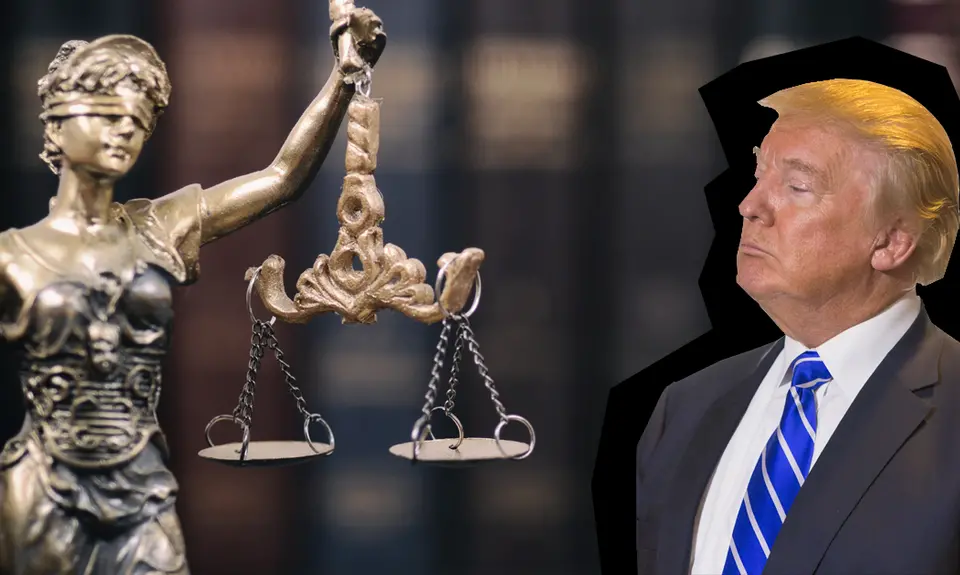The Senate Democratic Policy and Communications Committee’s extensive Captured Courts report, which was released on May 27, outlines the harm that Trump and Senate Republicans’ court-packing efforts is causing to all Americans in voting rights, money in politics, workplace discrimination, gun violence, air and water pollution, and access to health care.
PFAW’s own research, documented in our Confirmed Judges, Confirmed Fears web tool, confirms the devastating role that Trump-nominated judges in particular are playing from their positions on circuit courts as well as on the Supreme Court in all six of those areas.
Voting Rights: Trump-appointed Supreme Court justices Neil Gorsuch and Brett Kavanaugh have done significant damage to Americans’ voting rights, and Trump appellate judges are likely to continue. Specifically:
- Kavanaugh and Gorsuch cast deciding votes in a ruling that prevented tens of thousands of Wisconsin voters from voting in elections in April 2020.
- Kavanaugh and Gorsuch were the deciding votes that closed the door to federal courts hearing claims of unconstitutional partisan gerrymandering.
- Gorsuch cast the deciding vote in a decision that upheld Ohio’s practice of purging voters who did not vote in a previous election that threw more than a million voters off the rolls.
- Dissents by Trump court of appeals judges have tried to further harm voting rights by reversing a finding of state discrimination against black voters and by ruling that people cannot sue states for violating the Voting Rights Act.
Money in Politics: Trump judges are making it harder for us to protect our elections and our democracy from the corrupting influence of money. Specifically:
- Trump Eighth Circuit Judges David Stras, Ralph Erickson, Steven Grasz, and Jonathan Kobes partly invalidated a Missouri lobbyist registration and disclosure law, threatening all such disclosure requirements that promote transparency and good government.
- Trump Fifth Circuit Judge James Ho tried to strike down a municipal campaign contributions limit and attacked the legitimacy of ever limiting how much money a person or business can give to a candidate.
- Trump D.C. Circuit Judge Gregory Katsas sought to exempt the sizable bequest of a deceased donor from federal campaign finance laws.
Workplace Discrimination: Trump judges across the nation are using the courts to weaken the rights of working people. Specifically:
- Trump Ninth Circuit Judge Kenneth Lee made it harder for an employee to present evidence of a racially hostile work environment.
- Trump Seventh Circuit Judges Amy Coney Barrett, Michael Brennan, Michael Scudder, and Amy St. Eve ruled that hiring practices with a discriminatory impact on older job applicants don’t violate the law prohibiting age discrimination.
- Trump Sixth Circuit Judges John Bush and Joan Larsen let an airline fire an employee who made public safety complaints because she clashed with management.
- Trump Supreme Court Justices Neil Gorsuch and Brett Kavanaugh made it possible for the Court to take yet another step to reshape the law to strip working people of their rights against powerful corporations through forced arbitration.
- In other cases, dissenting Trump judges have tried to make it easier for companies to intimidate employees into giving up their Title VII rights; overturn remedies ordered by the National Labor Relations Board against a company that committed unfair labor practice; and make a Walmart employee who lost a discrimination case pay the company a quarter of his salary.
Gun Violence: Trump is filling our nation’s circuit courts with judges who are hostile to efforts to reduce gun violence. For instance:
- Trump Fifth Circuit Judges James Ho, Don Willett, Kyle Duncan and Kurt Engelhardt tried to get the court to reconsider states’ gun safety laws under the Second Amendment, which they claim does not get enough respect from the judiciary.
- Trump Third Circuit Judge Stephanos Bibas tried to invalidate New Jersey’s limit on the amount of ammunition in a single firearm magazine, increasing the harm caused by assault weapons in mass shootings.
- Trump Seventh Circuit Judge Amy Coney Barrett would allow the overturning of a law banning people convicted of felonies from possessing firearms.
Air and Water Pollution: Trump-nominated appellate court judges have already limited efforts to stop air and water pollution. Specifically:
- Sixth Circuit Judge Joan Larsen wrote a 2-1 decision that dismissed a petition to review air pollution permits to a company that wanted to build a natural gas pipeline, which the dissent pointed out could threaten “public safety.”
- Larsen and several other Trump judges in the Sixth Circuit argued that a Flint, Michigan woman should not be able to go forward with her claim that city officials helped cause lead poisoning in the city’s water.
- D.C. Circuit Court Judge Neomi Rao tried to uphold a Trump EPA rule eliminating restrictions on dangerous hydrofluorocarbon emissions.
Health Care: Trump-nominated appellate judges are already harming Americans’ access to health care, and threaten to do even more damage. Specifically:
- Fifth Circuit Judge Kurt Engelhardt cast the deciding vote to declare the Affordable Care Act’s (ACA) individual mandate unconstitutional and suggested that the entire ACA may be unconstitutional. This case will be reviewed by the Supreme Court in its 2020-21 term.
- Sixth Circuit Judge John Nalbandian wrote a 2-1 decision holding that the large corporation Honeywell is not required to provide any health benefits to retirees, despite a union contract.
- Trump judge Ralph Erickson cast the deciding vote to throw out of court serious claims of Medicare fraud against a hospital by its employees.
- Other Trump-appointed appellate judges have tried to harm health care by arguing in dissent that an insurance company could deny disability benefits to a cancer victim; that the Trump administration did not have to act to facilitate insurance coverage for a device needed for cystic fibrosis patients; and that religious objections could invalidate a fire department’s immunization policy concerning infectious diseases.
